Strategy & Scoping
Define sources, signals, frequency, and the deliverable format so engineering maps to business value.
Potent Pages designs and operates long-running web crawlers and alternative data pipelines for organizations that rely on timely, structured signals — including plaintiffs’ firms (case finding) and hedge funds (proprietary data).
We’re not selling “scraping.” We build data acquisition systems that keep working as websites evolve — and we deliver outputs your team can use immediately: clean tables, structured datasets, and reliable ongoing feeds.
Define sources, signals, frequency, and the deliverable format so engineering maps to business value.
Purpose-built crawlers for static and dynamic sites, forms, portals, and multi-step workflows.
Clean data delivered via CSV, DB, or API, with monitoring, alerts, and maintenance as sources change.
We help plaintiffs’ teams identify early signals across fragmented sources — turning scattered updates into structured leads and research-ready datasets.
Common use casesWe design thesis-driven crawlers that acquire signals before they land in widely-shared datasets — delivered in formats ready for modeling and monitoring.
Common use casesThe websites that matter most are usually the ones that break generic tools: forms, logins, dynamic pages, changing layouts, rate limits, and messy data.
Rate control, resilience, failure recovery, and long-running operational stability.
CSV, database tables, APIs — plus clear schemas, documentation, and consistency checks.
Alerts when sources change, content shifts, or pages begin returning unexpected structures.
High-value data is rarely “one scrape.” It’s a changing environment that needs a system designed to last.
Critical sources live behind forms, change layouts, and rarely notify you when updates happen.
Crawlers built with resilience, validation, monitoring, and maintenance — not just extraction.
Clean tables delivered on schedule, aligned to your workflow, with less manual work for your team.
We deliver full lifecycle crawler development — including scoping, engineering, reliability hardening, and structured delivery.
Signal design, source mapping, frequency, delivery formats, and validation plan.
Forms, portals, pagination, documents, dynamic sites — purpose-built for your sources.
Alerts, drift detection, updates when sites change, and ongoing operational support.
Some quick questions answered about web crawling & our servives. If you’d like help scoping a crawler quickly, start here.
Web scraping, also called web crawling or web spidering, is using a computer to go out and collect information from a website. This helps you collect a large amount of data in a smaller amount of time, as compared to doing the work by hand.
There are a number of different types of web scraping tools and techniques. In general, the web scraping tool will download webpages, extract information, and save it for later.
You can use web scraping in a large number of ways. The most common ways businesses use web scraping (in our experience) is to collect data about other companies. Some common tasks include:
In general, web scraping follows a 3-step pattern: download, parse, and store. First, the scraper downloads a webpage (or other data) from a website server (tools vary — cURL is popular). Second, it extracts the desired information. Third, it stores the results in a usable format.
Storage options range from databases to files to spreadsheets, depending on your workflow and how the data will be used.
At Potent Pages, we develop web crawlers in the following pattern:
The right tools depend on the site and the data. Sometimes a general purpose spider plus custom extraction is best. In other cases, a fully custom downloading tool is required.
Similarly, processing depends on the structure and downstream needs. For simpler cases, a Python or PHP script can handle extraction. For more complex situations, a more complex program with custom logic is required.
Delivery depends on how you need the data. For small outputs, email works. For larger datasets, it often makes sense to store results on a server for direct download or provide an API/database.
The cost of web scraping can vary depending upon the difficulty of your project. While pricing has changed over time, there are a lot of web crawler pricing models and factors that affect the costs, including many hidden costs. In general, a simple crawler can range anywhere from $100-$400, and more complex crawlers can cost $800 to $1500 or more. There are also tools that will help you do the work yourself for free. The cost just depends on your needs.
For larger projects, the economics of web crawlers can be a bit involved. You’ll need to include the costs of planning, development, and testing. You’ll need to include running costs like servers and bandwidth. You’ll also need to consider longer-term costs like updates to your crawler if your target site(s) change.
Ensuring great value for money in web crawling is always of the utmost importance. There are a lot of misconceptions about web crawlers. Having a skilled team of developers can ensure that your project is a success, but functionally and financially.
Whether you need a web scraper depends on the type and quantity of data you’re acquiring. If you need a large quantity of structured (or semi-structured) data collected repeatedly, scrapers help. If the data is small, manual work may be easier.
For completely unstructured data (like books or long freeform content), understanding meaning can require human judgment — though technology is continuously advancing. If you’re unsure, contact us and we can recommend the best approach.
Yes. You can use OpenAI’s APIs to enhance your web crawler — most commonly for content analysis: classification, extracting meaning from text, identifying concepts, and summarizing large batches of pages.
We often implement AI-assisted processing so clients receive cleaner, more actionable outputs from their crawler results.
Yes — we can develop crawlers to track auction and e-commerce sites for items you’re watching, extract attributes, save them to a database, and analyze price changes.
In some cases, it’s possible to build automation to act on deals — though implementation depends on site behavior and constraints.
The legality of web scraping varies by location, how data is accessed, and what you do with it. You should consult an attorney for your situation.
In general, common considerations include avoiding harm to the target server, respecting reasonable access patterns, following robots.txt where appropriate, and being mindful of copyright and terms of use.
There are many methods, ranging from general web spidering (downloading large portions of a site) to targeted crawling (focused extraction of specific fields).
General spiders are useful if you want broad content coverage (titles, links, full pages). Targeted crawling is better when you want specific data (products, records, tables) at scale.
A web spider follows links from page to page, downloading and parsing each page along the way. This is how search engine crawlers like Googlebot and Bingbot work.
There are tools that download entire sites too, but more efficient spiders typically require more complex engineering.
Absolutely — a well-built crawler can notify you in multiple ways:
The best solution depends on how often you need updates and how large the results are.
A crawler can send data in whatever format works best: spreadsheets (CSV/XLSX), a database (MySQL, etc.), compressed files, or API delivery.
Who you should hire to build you a web scraper will depend on the goals of your scraping project. If you need a large amount of data, or need it in any way customized, a custom web crawler programming firm may be best for you. At Potent Pages, this is what we do.
On the other hand, if you need something simpler, like a few dozen webpages downloaded and some content extracted, you could use one of the many automatic tools available, like 80 Legs or Import.io. If you need help figuring out the best solution to what you need, please contact us using the form below and we would be happy to explain the best crawling options available to you.
Start by defining what site(s) you want to crawl and what data you need. Then design the crawler around site complexity, scale, and your language/tools.
If you’re getting started, we also have web crawler tutorials. If you need professional help at any stage, contact us and we’ll walk you through the options.
Speed is often measured as pages downloaded per unit time (e.g., 10,000 pages/hour). It’s usually constrained by server response time, throttling, and how much concurrency you can safely run.
As a simple example: a 2-second average delay with one-at-a-time parsing yields about 1,800 pages/hour. With high concurrency (e.g., 100 pages at a time), throughput can scale dramatically — but must be engineered responsibly.
XPaths are a way of identifying elements in an HTML document. Crawlers use XPath to reliably locate page elements (by tag, attribute, or position) and extract data repeatedly.
They’re commonly used to scrape product info, tables, and other structured fields and store them for analysis.
There are 19 Googlebot web crawlers. Two main varieties are Googlebot mobile and Googlebot desktop. These two are then used across the 19 Googlebot crawlers.
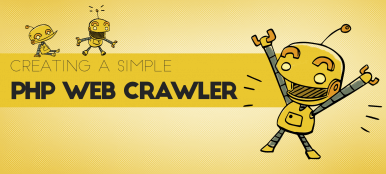
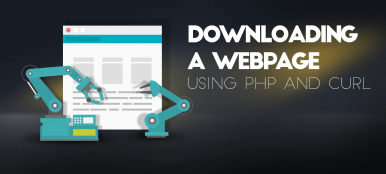
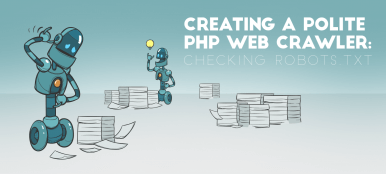
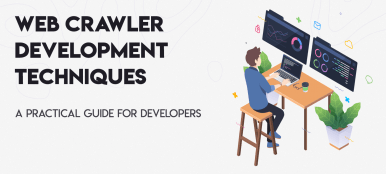
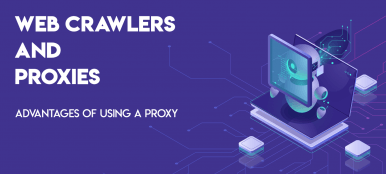
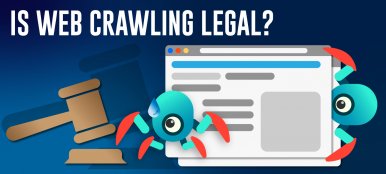
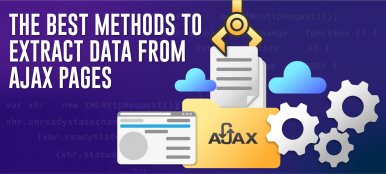
























If you need reliable, long-running web crawling and structured datasets for case-finding or alternative data, we’ll scope it quickly and propose a clear, maintainable approach.